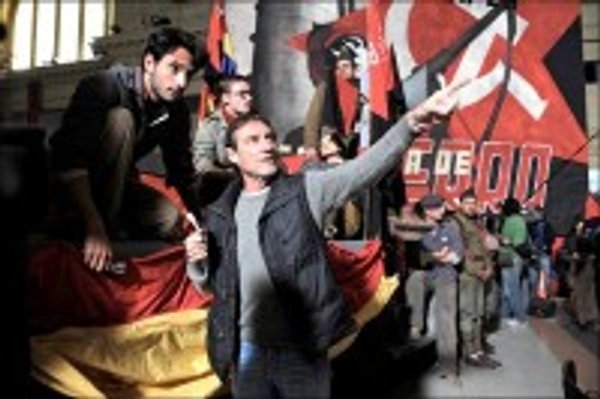There be Dragons, by acclaimed Academy Award director Roland Joffé (Killing Fields and The Mission) on the life of Opus Dei (God’s Work) founder, Saint Josemaría Escrivá , set to hit commercial theaters on November 9, is a movie not to be missed. It is a film that will leave the viewer to seek answers, not just on faith and the divine, but on relationships and how forgiveness that’s given and received is as liberating as the truth. Joffé, a reputed agnostic, initially didn’t agree to meg the movie but eventually he agreed upon being touched by a documentary about Saint Josemaría .
Epic in scope, poetic in narration, scenic in cinematography, it’s based on true events where Joffé intelligently blended the fictional with the historical to bring a coherence to the movie’s main story and its backdrop, the brutal Spanish Civil War in 1936 also the time when Josemaría Escrivá as young priest faces personal and vocational dragons.
Unlike a stereotypical life-of-a-religious film, There Be Dragons unravels the life tale of Josemaría Escrivá (played by British actor Charlie Cox) as he endures daily doses of drama, action, suspense, and even comic relief. It’s not a film that preaches but narrates a sound story where creative license emphatically enhances truthful references as to how this young priest embraced his chosen path, symbolic of his walking barefoot on the snow, which eventually gives birth to Opus Dei, founded on the tenet of “sanctification of work” as a means to honor “the love of his life, Christ.”

Still the thread that puts this fabric together to form a tapestry of humanity, is the brutal Spanish Civil War where families and friends confront the question, “Whose side are you on?” fittingly an implication to the eternal battle of conscience, of good versus bad. The rendition inspired by the Battle of Guernica is movingly haunting, for indeed, no one exults truly victorious in any war.
The fictional flashback scenes, that put the present into context are neither contrived nor misplaced. For instance, to make the now and the past meld, it presents a London-based book author, Robert Torres (Dougray Scott) writing a book on Josemaría Escrivá who needs to speak with his estranged father Manolo Torres (Wes Bentley) about personal vignettes on Josemaría but also to confront him on their own relationship. This clever device allows for the moviegoers, most specially, the youth to connect the circumstances involving the characters.
In the process of healing, his father admits to be, in the Facebook generation’s lingo, Josemaría’s frenemy. But he tells more. To his, he reveals the painful truth about his own identity. How through the years, his conflicted soul made him choose to be distant, cold, and alienated towards his son. This scene, where father and son liberate themselves from hurt is the most compelling part of the movie, and the film-goer must see the subtlety and brilliance of the performance of the actors. It’s the emotional high, but it’s not one packed with lore nor lectures.
There Be Dragons may have its cinematic shortcomings but its ultimate point is not alone to tell of the saintly virtues of Josemaría Escrivá, but more importantly, what he imparts to the world: that it is in slaying our personal and fiercest, biggest dragons — of pride and of prejudice — that makes us healed and whole. Certainly, the center of humanity is man, where greatness resides, and forgiveness abounds.
